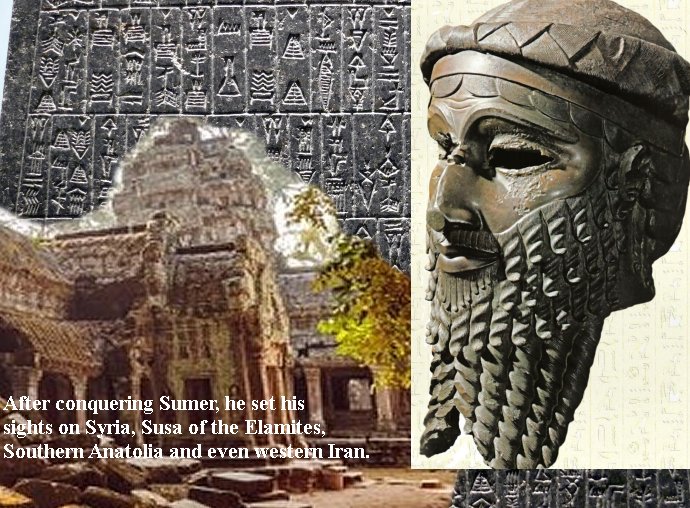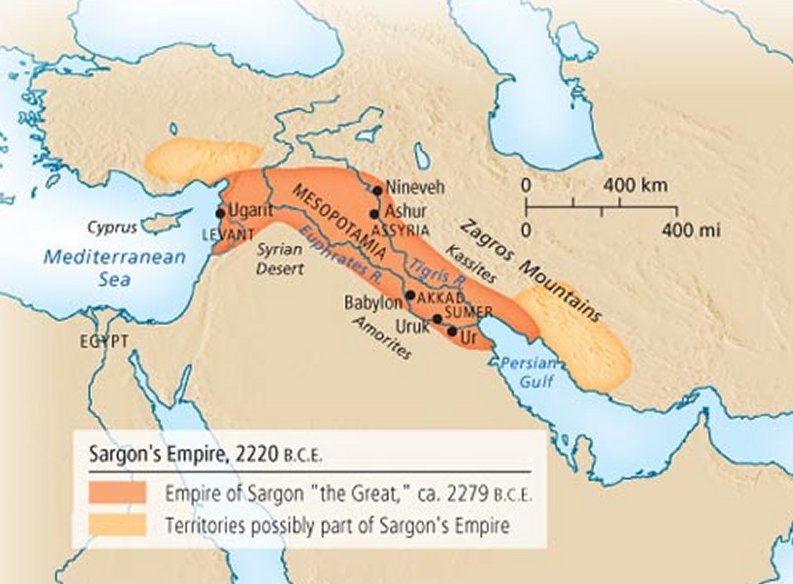Sargon Of Akkad – Prominent Leader Who Rose Out Of Obscurity
David Tee - AncientPages.com - Even though his true name, Sarru-kinnu, meant ‘true king’, he took the name Sargon when he ascended the throne. Why he did this is unknown and some scholars say it was a biblical translation, not a will full choice.
This name has given scholars the idea that Sargon the Great was a Semite who spoke a Semitic language.
The problem is that the name Sargon was used often after his reign confusing historians as to which legend, myth, or actual historical record applied to the original Sargon, known as the Great.
He Was Found Floating In A River
Legend has it that a gardener found Sargon floating in a river in a tiny little basket. This myth reflects the story of the biblical Moses and has led some scholars to claim that the biblical authors copied from Sargon’s birth to give Moses a more human and humble beginning.
Little is known of Sargon’s parents. His mother was supposed to be a priestess in an unknown town located around the middle of the Euphrates. His father is completely unknown. Even with the handicap of not knowing who his relatives were Sargon, rose to be the cupbearer of a ruler of Kish and because of this position, Sargon was given leadership over an army.
Sargon went on to conquer and create his powerful empire, establishing his name as Sargon the Great.
Historical Record And Tablets From Sargon’s Era
Finding information about Sargon is quite difficult. There are many men who came after him who used the same name. But the royal inscriptions do attest to him although the majority of Akkad texts come from 2nd millennium Assyrian and Babylonian texts.
Yet those were not the only locations that held inscriptions referring to Sargon. When the town of Ebla was unearthed, its importance was not fully realized. But Italian archaeologists decided to dig a little deeper and eventually came upon a much older city underneath Ebla.
In the ruins of that older city were 42 tablets from Sargon’s era. A little later 15,000 more were found and they detailed the business dealings and trade between different nations and Sargon. However, these documents do not pinpoint the dates of his rule nor provide a sequence to the events surrounding his life.
These tablets also described the law code that Sargon had imposed on his people. Men were fined for having sexual relations with unmarried women or if they were a virgin, they were put on trial to see if the woman was raped. Religious tablets were also found depicting the religious practices of the time.
He Expanded His Empire
Sargon was able to use his military and personal genius to carve out a large empire. After conquering Sumer, he set his sights on Syria, Susa of the Elamites, Southern Anatolia, and even western Iran.
For Sargon, keeping control of such a vast empire was not that difficult. He used trusted men to oversee the captive cities and regions, even to the point of using his daughter to make sure the conquered people were controlled through religious and political means.
No emperor has an easy time ruling other nations. The nation people have a way of becoming disgruntled with foreign rule and seek ways to end it. Even after reigning for 56 years, Sargon still had rebellions and other opposition to his rule to put down.
The fact that Sargon was able to create a dynasty and have a grandson named Sargon II shows that he was a capable ruler whose empire lasted long after his death. His influence also lasted long after his death as well.
Origin Of The Akkadian Language
Sumer’s language was quite different from the language that Sargon spoke. Akkadian was a Semite language which was only one version of a group of Semite languages that existed at that time.
The name Semite was taken from the Bible. It refers back to Shem, one of the sons of Noah. Some of the other Semitic languages spoken at that time and centuries afterward, are Hebrew, Arabic, Assyrian, and Babylonian.
Sargon The Great’s Legacy
While Sargon was a great leader, his empire did not last very long. He built a beautiful capital city and named it Agade. Unfortunately, this city did not survive past his grandson, Naram-Sin. The mountain living Guti descended upon Sargon’s capital city and destroyed.
But his capital city was not the only part of Sargon’s legacy. Two Assyrian kings were named after him. Sargon also left behind the law and religious code that helped govern his empire. Finally, his Agade city name evolved into Babylon which became a center point of Mesopotamia history for approx. 2,000 years
Even though Sargon the Great rose out of obscurity, he was able to grow into a great leader. He did not let his lack of family or status in life hinders him from obtaining the absolute leadership of the Akkadian people.
This is probably one reason he was given the title “the Great” when others examined his rise to power and his overall accomplishments. Sargon did not let handicaps or obstacles get in the way of his goals.
Sargon is credited with establishing the first world empire even though it may have been founded on earlier expansion efforts conducted by Lugalzagesi of Umma. No matter who started the expansion, it was Sargon who finished it. His influence helped guide future military leaders including Alexander the Great.
Written by – David Tee AncientPages.com Staff Writer
Copyright © AncientPages.com All rights reserved. This material may not be published, broadcast, rewritten or redistributed in whole or part without the express written permission of AncientPages.com
Expand for referencesReferences:
Youngblood, R. F., Bruce, F. F., & Harrison, R. K., Thomas Nelson Publishers (Eds.). (1995). In Nelson’s new illustrated Bible dictionary. Nashville, TN: Thomas Nelson, Inc.
Saggs, H.W.F. Babylonians
Roux, G. Ancient Iraq
From Syria Sensational New Collection of Tablets Found (1976). Bible and Spade, 5(3), 83.
More From Ancient Pages
-
 Unique Ancient Man-Made Underground Structure In New England Puzzles Experts – Who Built It And Why?
Featured Stories | Aug 11, 2024
Unique Ancient Man-Made Underground Structure In New England Puzzles Experts – Who Built It And Why?
Featured Stories | Aug 11, 2024 -
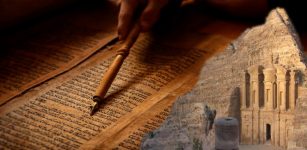 Selah – Mysterious Biblical Word Of Unknown Meaning
Biblical Mysteries | Jan 5, 2018
Selah – Mysterious Biblical Word Of Unknown Meaning
Biblical Mysteries | Jan 5, 2018 -
 On This Day In History: Ceres Discovered By Giuseppe Piazzi – On Jan 1, 1801
News | Jan 1, 2017
On This Day In History: Ceres Discovered By Giuseppe Piazzi – On Jan 1, 1801
News | Jan 1, 2017 -
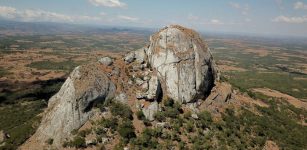 Ancient DNA Reveals Surprises About Life Of Early Africans
Archaeology | Feb 24, 2022
Ancient DNA Reveals Surprises About Life Of Early Africans
Archaeology | Feb 24, 2022 -
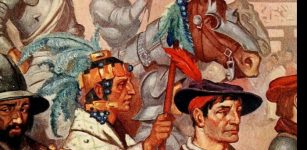 On This Day In History: Spanish Conquistadors Led By Hernan Cortés Entered The Aztecs Capital Tenochtitlán – On Nov 8, 1519
News | Nov 8, 2016
On This Day In History: Spanish Conquistadors Led By Hernan Cortés Entered The Aztecs Capital Tenochtitlán – On Nov 8, 1519
News | Nov 8, 2016 -
 Invisible Ink On Antique Nile Papyrus From The Island Of Elephantine – Revealed
Archaeology | Aug 21, 2019
Invisible Ink On Antique Nile Papyrus From The Island Of Elephantine – Revealed
Archaeology | Aug 21, 2019 -
 Unkulunkulu: ‘Great Oldest One’ Progenitor Of Mankind, Creator Of All Things And Origin Of Death In Beliefs Of Zulu People
African Mythology | Sep 30, 2019
Unkulunkulu: ‘Great Oldest One’ Progenitor Of Mankind, Creator Of All Things And Origin Of Death In Beliefs Of Zulu People
African Mythology | Sep 30, 2019 -
 Unexplained Ancient Encounters With Shining Beings Who Appeared Out Nowhere – Who Were They?
Featured Stories | Dec 15, 2024
Unexplained Ancient Encounters With Shining Beings Who Appeared Out Nowhere – Who Were They?
Featured Stories | Dec 15, 2024 -
 Rare Bronze Age Sacrificial Offerings, Including A Bent Sword Found In A Bog Near Veksø, Denmark
Archaeology | Dec 3, 2024
Rare Bronze Age Sacrificial Offerings, Including A Bent Sword Found In A Bog Near Veksø, Denmark
Archaeology | Dec 3, 2024 -
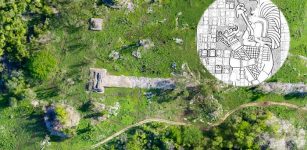 The 100-Kilometer-Long Stone Highway That Connected Ancient Maya Cities Revealed By LIDAR
Archaeology | Feb 25, 2020
The 100-Kilometer-Long Stone Highway That Connected Ancient Maya Cities Revealed By LIDAR
Archaeology | Feb 25, 2020 -
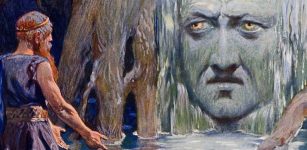 Giant Mimir And The Well Of Wisdom In Norse Beliefs
Featured Stories | Apr 11, 2018
Giant Mimir And The Well Of Wisdom In Norse Beliefs
Featured Stories | Apr 11, 2018 -
 Viking Longships: Fearless Dragonships Daring The Oceans And Seas
Ancient History Facts | Apr 16, 2016
Viking Longships: Fearless Dragonships Daring The Oceans And Seas
Ancient History Facts | Apr 16, 2016 -
 Manasota People: Will 1,300-year-Old Village Tell Us About Their Lives?
Archaeology | Jan 11, 2016
Manasota People: Will 1,300-year-Old Village Tell Us About Their Lives?
Archaeology | Jan 11, 2016 -
 Ancient Chinese Version Of Quipu -Tradition Of Tying Knots Dates Back To Antiquity
Civilizations | Mar 15, 2017
Ancient Chinese Version Of Quipu -Tradition Of Tying Knots Dates Back To Antiquity
Civilizations | Mar 15, 2017 -
 8th Century Sculpture Of Lord Vishnu Belonging To Pandya Dynasty – Unearthed
Archaeology | Sep 16, 2020
8th Century Sculpture Of Lord Vishnu Belonging To Pandya Dynasty – Unearthed
Archaeology | Sep 16, 2020 -
 Mummification In Europe May Be Older Than Previously Known – 8,000-Year-Old Evidence Presented
Archaeology | Mar 4, 2022
Mummification In Europe May Be Older Than Previously Known – 8,000-Year-Old Evidence Presented
Archaeology | Mar 4, 2022 -
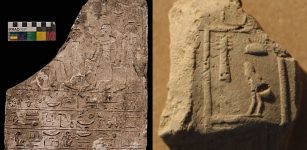 Important Discoveries Made In Upper Egypt’s Tel Edfu and Kom Ombo Sites
Archaeology | Jan 15, 2018
Important Discoveries Made In Upper Egypt’s Tel Edfu and Kom Ombo Sites
Archaeology | Jan 15, 2018 -
 Mysterious 3,200-Year-Old Hittite Map Of The Cosmos And The 12 Gods
Archaeoastronomy | Jul 2, 2021
Mysterious 3,200-Year-Old Hittite Map Of The Cosmos And The 12 Gods
Archaeoastronomy | Jul 2, 2021 -
 Climate In The Andes Has Driven 7,000 Years Of Dietary Changes – New Study Reveals
Archaeology | Feb 9, 2022
Climate In The Andes Has Driven 7,000 Years Of Dietary Changes – New Study Reveals
Archaeology | Feb 9, 2022 -
 Oldest Known Sami Manuscript Discovered – It’s Undeciphered And Written By An Unknown Author
Linguistic Discoveries | Nov 26, 2024
Oldest Known Sami Manuscript Discovered – It’s Undeciphered And Written By An Unknown Author
Linguistic Discoveries | Nov 26, 2024

